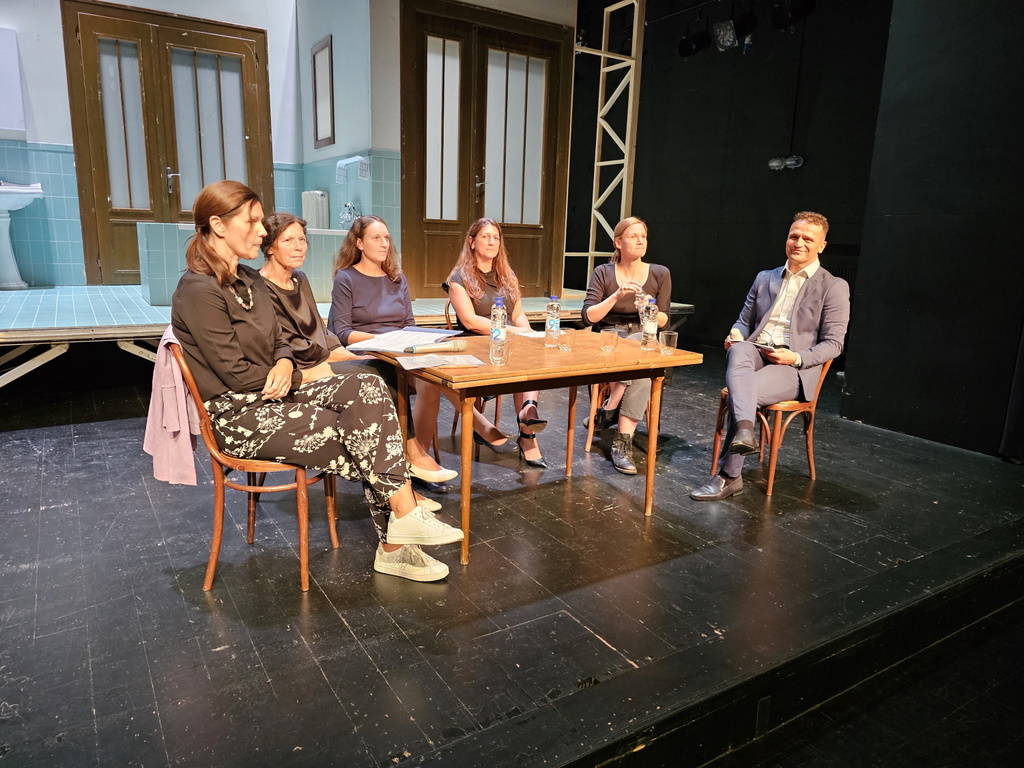Combating domestic violence is not the responsibility of a single institution but requires the collective commitment of all relevant services and society as a whole. This was the central message from the expert round table on domestic violence, held at the Slovenian National Theatre in Nova Gorica on 12 September 2024. The event was organised by the Criminal Police Directorate of the General Police Directorate.

"Domestic violence is a problem that extends beyond individual homes and private spaces. It is a violation of the Universal Declaration of Human Rights, specifically the rights to security of person, dignity and equality, which places a responsibility on the relevant institutions to protect victims, take decisive action against perpetrators and, most importantly, ensure that everyone involved can live a life free from violence and abuse," said Director General of the Police Senad Jušić.

Domestic violence highlighted through art for the first time
This year’s panel on domestic violence took a unique approach by incorporating a theatre performance. For the first time, the panel featured Five Types of Silence, a play by English playwright Shelagh Stephenson, in which actors from the Slovenian National Theatre in Nova Gorica depicted the experiences of domestic violence victims through scenes on stage. This innovative integration of art and expert insight provided a deeper understanding of the victims' inner world and their often indescribable hardships.

This approach showcased how art can connect people on an emotional level and foster meaningful dialogue about community solutions, helping to break the silence surrounding domestic violence and encouraging collaborative efforts to develop effective prevention strategies.
The theatre performance was followed by a round table of experts who discussed various aspects of domestic violence and proposed concrete solutions for its prevention, detection and management.

Domestic violence is a police priority
Domestic violence is a top priority for the police due to its severe impact on both individual health and societal well-being. This issue not only threatens the physical and mental health of victims but also has long-term negative consequences for society. Often occurring behind closed doors, domestic violence can remain hidden, making it essential for the police – who are the first line of response – to act swiftly, professionally and lawfully, while also demonstrating high levels of empathy towards victims.
The police play several critical roles in handling domestic violence cases: ensuring the safety of victims, preventing further violence, protecting victims and prosecuting perpetrators. It is essential that police officers possess the necessary professional skills to identify signs of violence, accurately assess risks, make individual threat assessments and utilise legal mechanisms such as restraining orders or detention when necessary. By conducting procedures in accordance with applicable law, the police ensure that the rights of all parties involved are protected.

Related content
Domestic violence – police procedure


